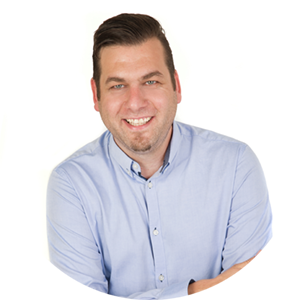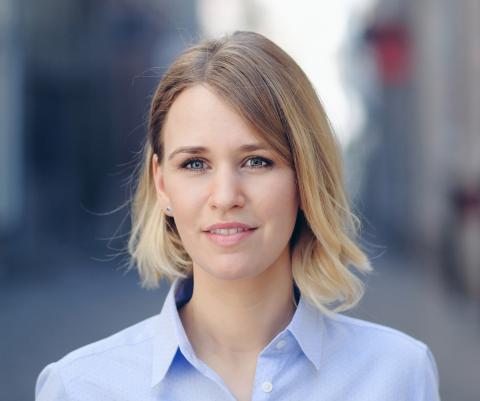Symposium: Empowering accounting with AI
Artificial intelligence offers unprecedented opportunities for accountants. But what about data security and ethics, for example? At the Accounting Winter Symposium and Research Camp on December 7 and 8, researchers in accounting and professionals will gather at Tilburg University to explore the risks and opportunities of AI within their fields.
By way of introduction, six questions to coordinators Eddy Cardinaels and Judith Künneke.
Eddy Cardinaels is Professor of Accounting | Judith Künneke is an Assistant Professor of Accounting.
What makes AI so attractive for accountants?
‘The first game changer is automation. AI offers tools to work faster and more accurately and strategically. An algorithm can detect patterns and unusual transactions, and the precision of AI also reduces errors and discrepancies in financial reports. Algorithms can also recognize trends, make predictions based on existing data, and assess risk in ways that were inconceivable a few years ago. And finally: since AI is good at performing routine tasks, an accountant can focus on investigating. That makes the work more interesting.’

Artificial intelligence makes the accountant’s job more interesting
Can AI also detect corporate fraud?
‘Certainly, that is one of the promising applications of AI. Thanks to its ability to process vast amounts of data at lightning speed, AI can recognize patterns that remain undetected by humans. These outliers may be indications of fraudulent activity, such as unusual financial transactions, discrepancies in purchase orders or irregularities in payroll administration. Moreover, by learning from previous fraud cases, AI can become increasingly sophisticated in recognizing new, complex fraud schemes. This makes it increasingly difficult for fraudsters to remain under the radar, and AI can play a crucial role in protecting assets and integrity.’
What are the greatest risks?
‘One of the biggest challenges is the danger of self-learning systems. If they are trained with wrong or biased data, they can draw the wrong conclusions or reinforce biases present in the datasets. This can lead to undesirable or unethical decisions, especially if these systems are used in such sensitive areas as credit assessment or recruitment. The problems as a result of the Dutch childcare benefit scandal are a case in point. Numerous Dutch families suffered the devastating effects of being falsely accused of fraud by the Dutch tax authorities, also as a result of a discriminative algorithms. And, of course, security is crucial. AI systems can become targets of cyber attacks and, if hacked, the consequences can be far-reaching, especially in critical infrastructure or financial systems.’
Accountants are not data scientists and they never will be. But they must be able to understand algorithms and their consequences in order to make sound decisions.
Eddy Cardinaels

How worried should we be about these risks?
‘Given the speed of developments, there is hardly any moment to lean back when it comes to risk management. Ongoing controls and security measures are needed to protect systems from vulnerability to breaches or misuse. Moreover, there must be oversight of how these technologies are deployed to avoid unexpected negative consequences. And another important factor is education. Accountants are not data scientists and they never will be. But they must be able to understand algorithms and their consequences in order to make sound decisions.’
Will accountants become obsolete?
‘No, even though a number of labor market surveys say otherwise. It is often said that accountants are at the greatest risks of being supplanted by AI. However, people forget that accountants perform a variety of tasks. If you think in terms of typing out journal entries, then yes. But the stereotype of the “boring” accountant does no justice to the profession. Accounting involves much more than merely tracking transactions: it is about reflecting a company’s financial performance, providing input for decision-making, and providing strategic insight for internal and external stakeholders, based on financial but also increasingly non-financial information. With the advent of technology, accountants will increasingly focus on roles in data analysis, business consulting, and the interpretation of (non-) financial information. A human assessment, with a view to nuances and an understanding of the context, remains essential, especially in a field in which trust and expertise are crucial.’

The stereotype of the “boring” accountant does no justice to the profession
Judith Künneke
What can Tilburg research add to the discussion about AI?
‘A lot! For instance, take Merel Noorman of our Tilburg Institute for Law, Technology and Society. She investigates how technological progress can be used in an ethically responsible way, which is crucial for legislation and policymaking. She was recently invited for an interview on this subject and we are pleased that she will also contribute to our symposium in December. At the Accounting department, Eddy is busy with a study on audit analytics. An academic team is investigating how the introduction of audit analytics can help reduce the pressure caused by a CFO to conduct an internal audit (and yes, it does help, for some of the auditors). Here in Tilburg, we have a nice and diverse group of researchers who look at AI from different angles.’
Accounting Winter Symposium and Research Camp
On December 7 and 8, practitioners and researchers from inside and outside Tilburg University will engage in dialogues about AI during the Accounting Winter Symposium and Research Camp.
Keynote speakers include David Wood (Brigham Young University, USA) and Klaus Möller (University of St. Gallen, Switzerland). The Tilburg University researchers involved include Theo-Jan Renkema, Dennis van de Wiel, Emile Aarts, Angelique Koopman, Merel Noorman, Bart Dierynck, Eddy Cardinaels, Judith Künneke, Iuliana Sandu, Máté Széles, and Agnes Verhoeven-Schermij.
